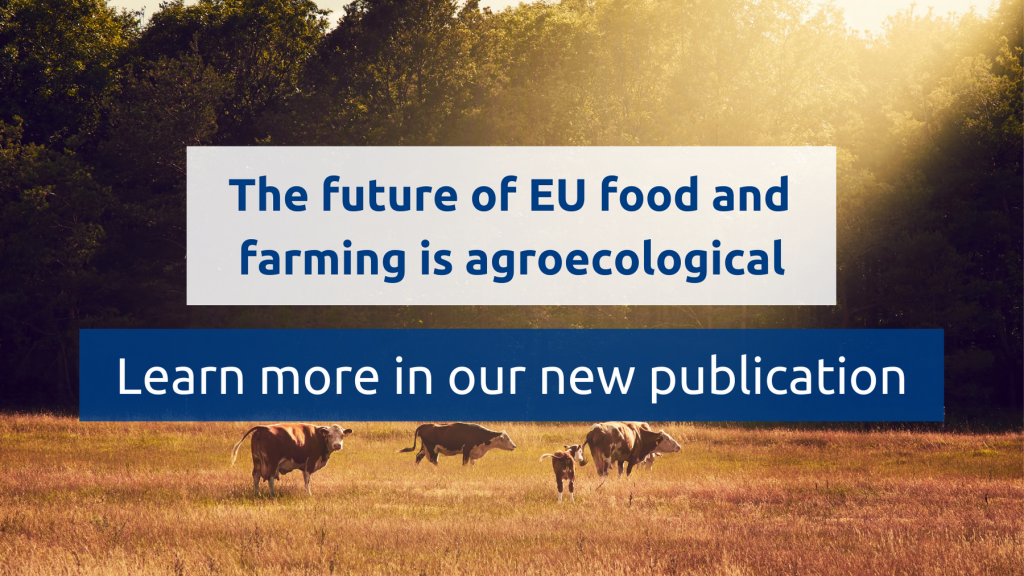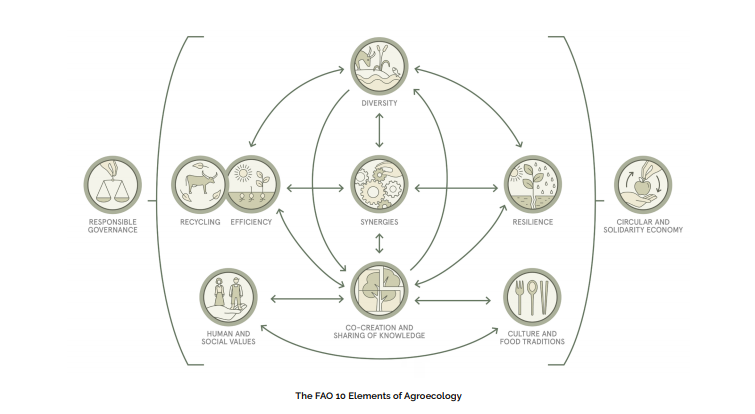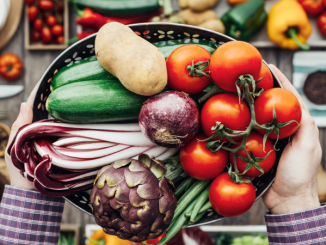Agroecology can be integrated into EU policy making – and it needs to be. To back this claim up, 25+ organisations have come together – including ARC2020 – with a concise new publication to show how this can be done. Using the FAO ‘10 Elements of Agroecology’ and ‘13 Agroecological Principles’ as a framework, the paper introduces how to to develop the appropriate instruments and targets for EU policies.
With agri-food systems facing and contributing to a number of interconnected socio-economic stresses, the time has never been more appropriate to integrate an agroecological approach. Agroecology, described in this new paper as “the science of applying ecological concepts and principles to the design and management of sustainable agriculture and food systems” can make a number of related positive contributions.
Download – Policy-paper_mainstreaming-agroecology-in-EU-policies
Just some of these related areas include biodiversity, long term soil fertility, farm management, pollution, livelihoods, climate, poverty and long term rural resilience.
Initiatives like Ten Years for Agroecology have shown “co-benefits in terms of ecosystem services and environmental regeneration” the shared letter states, citing agro-diversity, healthy diets and improved incomes as just some of the positives that flow from an agroecological approach.
Both the EU Green Deal’s Farm to Fork and Biodiversity Strategies “acknowledge the significant role that agroecological transformation will play in underpinning a food systems transformation” the co-signed letter emphasises.
13 consolidated agroecological principles
“recycling; input reduction; soil health; animal health; biodiversity; synergy; economic diversification; co-creation of knowledge; social values and diets; fairness; connectivity; land and natural resource governance; participation.”
10 elements of agroecology
Diversity; synergies; efficiency; resilience; recycling; co-creation and sharing
of knowledge Human and social values; culture and food traditions
Responsible governance; circular and solidarity economy.
Using the UN FAO’s 10 elements and also the 13 principles of agroecology, “the planning, management, and evaluation of an agroecological transition” can be supported – presenting in this” a ready-made assessment tool” against which EU and other policies should be designed and measured. Moreover the FAO’s Tool for Agroecological Performance Evaluation (TAPE) is already being used as an analytical framework that measures the level of agroecological transition of farms and other productive systems, thereby providing a guide to the development of public policies”.
The paper, led by the EU Food Policy Coalition, suggests that these sorts of tools should be used to address EU Green Deal targets, while funds in CAP and elsewhere should be made available in member states to design new schemes for agroecological transition. Eco-schemes, rural development projects and regional EU projects could integrate agroecology elements and principles.
The paper concludes by emphasising that it is the broad range of interconnected benefits agroecology brings which enables it to make a significant contribution to the multifaceted change we so urgently need: its not a tool but, rather, it is an entirely new a new toolbox, if only we have the gumption to grasp it.
More on Agroecology
Reclaiming the Place of Agrobiodiversity in the Conservation and Food Debates
What would really happen to GHG Emissions if England and Wales went Organic?
Europe’s Agroecology Movement – Stepping up in Times of Covid19
EU Green Deal | Carbon Farming Not Compatible With Agroecology
Comprehensive Tool Kit for Agroecological Land Access Launched
The Myth of Climate Smart Agriculture – Why Less Bad Isn’t Good
Rural Dialogues | Peasants of Nature – French Initiative Reconciles Agriculture & Biodiversity
Farming as its Ferment to be? Korean Natural Farming in Ireland
Comparing Organic, Agroecological and Regenerative Farming part 1 – Organic
Catcher in the Rye: Breeding Diversity for Unpredictable Conditions







1 Trackback / Pingback
Comments are closed.